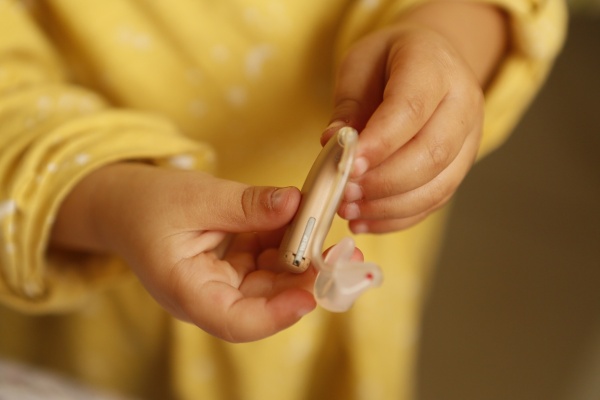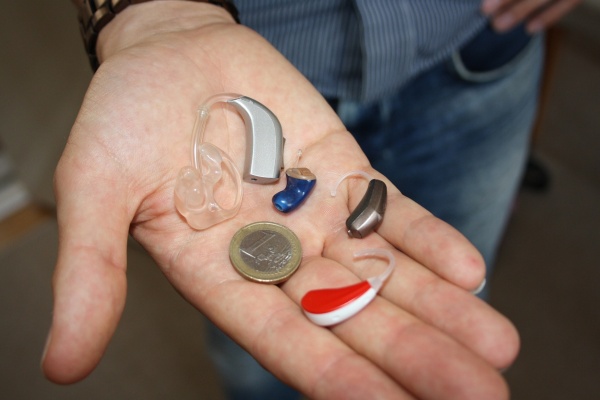Why Hearing Tests Are Important?

If you're over the age of 50, you may have started to notice that it's harder to hear people when they're talking to you. Or maybe you can't hear as well as you used to when you're watching TV. This is normal and it's nothing to be concerned about...yet. You see, as we age, our hearing starts to decline gradually. And if we don't do something about it, our hearing will continue to get worse and worse.
That's why getting a hearing test is so important. With a hearing test, we can find out just how well (or how poorly) we're hearing and then take steps to improve our hearing if necessary. So if you think your hearing isn't what it used to be, don't wait - get a hearing test today!
The different types of hearing loss
There are three main types of hearing loss: conductive, sensorineural, and mixed.
Conductive hearing loss
Conductive hearing loss occurs when there is a problem with the outer or middle ear, preventing sound waves from reaching the inner ear. This type of hearing loss is often temporary and can be treated with medical intervention.
Sensorineural hearing loss
Sensorineural hearing loss is caused by damage to the auditory nerve or inner ear, and it is usually permanent.
Mixed hearing loss
Mixed hearing loss is a combination of conductive and sensorineural hearing loss.
Treatment for hearing loss will vary depending on the type and severity of the condition. For example, someone with conductive hearing loss may benefit from surgery to repair the damaged ear, while someone with sensorineural hearing loss may need to use a Hearing aid.
If you think you might be experiencing hearing loss, it's important to see a doctor so they can determine the type and cause of your condition.
How to know if you need a hearing test
Wondering if you need a hearing test? There are a few tell-tale signs that can indicate that it's time to visit the audiologist. If you find yourself asking people to repeat themselves more often than usual, or if you have trouble understanding conversations in noisy environments, it may be time for a hearing test.
Additionally, if you find yourself turning up the volume on the television or radio more often than you used to, this could also be a sign that your hearing is starting to decline. If you notice any of these changes, it's a good idea to schedule an appointment with an Audiologist. They will be able to perform a series of tests to determine whether or not you have hearing loss and recommend the best course of treatment.
So don't wait too long to get your hearing checked - book an appointment today!
What to expect during a hearing test
If you've never had a hearing test before, you might be wondering what to expect.
The first thing the audiologist will do is ask you some questions about your medical history and any symptoms you may be experiencing. Then, they will conduct a physical examination of your ears. Next, you will be asked to sit in a soundproof booth and respond when you hear a sound. The audiologist will use this information to determine if you have hearing loss and, if so, how severe it is.
Hearing tests are quick and painless, so there's no need to worry. And once the test is over, you'll finally have some answers about your hearing.
The benefits of getting a hearing test
If you think you might have a hearing problem, it's a good idea to get a hearing test. A hearing test can help determine whether you have hearing loss and, if so, how severe it is.
Hearing tests are quick and easy, and they can be done by a qualified audiologist or ENT specialist. The results of a hearing test can also help your doctor rule out other possible causes of your symptoms. In addition to diagnosing hearing loss, a hearing test can also help identify any other problems with your ears, such as an earwax build-up or an infection.
So if you're experiencing any difficulty hearing, don't hesitate to schedule a hearing test. It could be the first step toward better hearing health.
How to take care of your hearing health
Hearing is one of the most important senses humans have. It allows us to communicate, enjoy music, and be aware of our surroundings. That’s why it’s so important to take care of your hearing health. Here are a few tips:
- Avoid loud noise whenever possible. Wear earplugs or headphones if you can’t avoid loud noise.
- If you work in a noisy environment, make sure to take breaks often and give your ears a chance to rest.
- See a doctor if you have any concerns about your hearing health. They can help you determine if you need to see an audiologist or other specialist.
- Be proactive about your hearing health. Get regular hearing screenings, especially as you get older.
Following these tips will help you protect your hearing and enjoy clear sound for many years to come.
Conclusion
If you’re experiencing any of the symptoms of hearing loss, or think you may be at risk, don’t hesitate to book a hearing test.
It's quick, easy, and painless – and it could make a big difference to your quality of life. Once you have a diagnosis, there are plenty of options available to help you manage your hearing loss and protect your ears from further damage.
By taking care of your hearing health now, you can enjoy many more years of happy listening.














